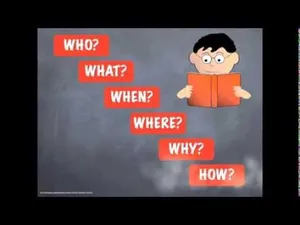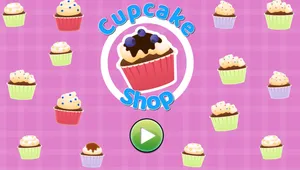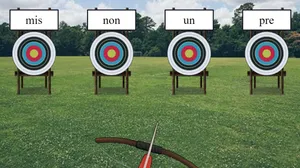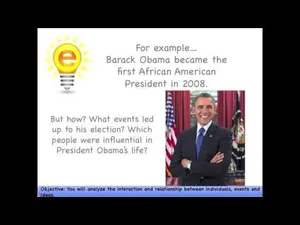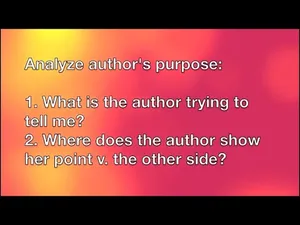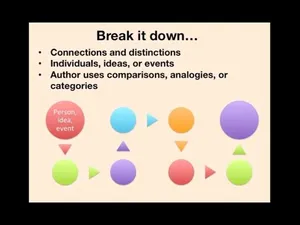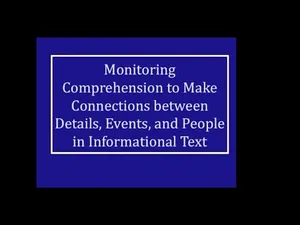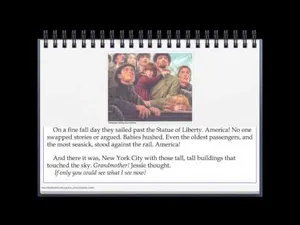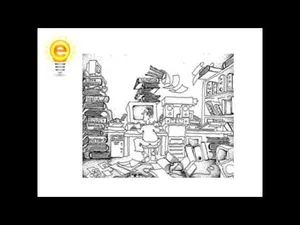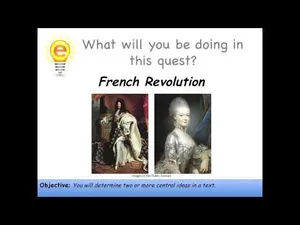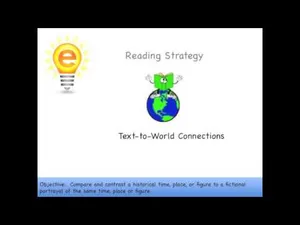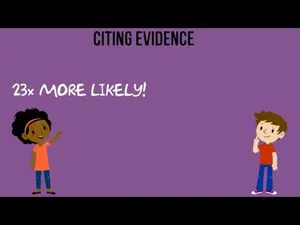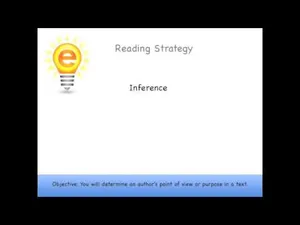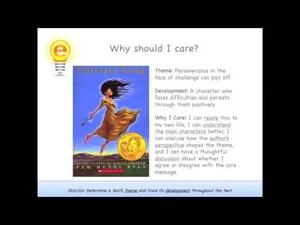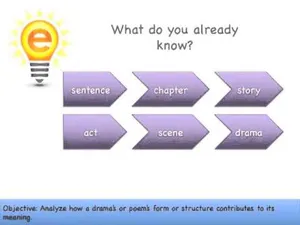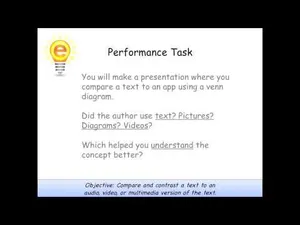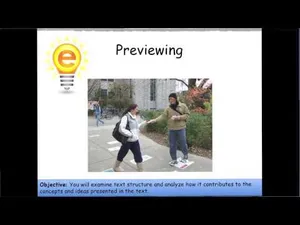Structure of a Story, Drama, or Poem
Relating Pieces to the Whole
RL.5.5 and 2 more
Textual Evidence
Textual Evidence and Inference
RI.7.1 and 1 more
How Ideas Are Related
How ideas are related
RI.7.3 and 1 more
How Does an Author Distinguish Their Point of View
Author's Point of View and Goal
RI.7.5 and 1 more
Determining Central Ideas in a Text
Central Ideas in a Text
RI.7.1 and 1 more
Making Textual Connections
Text development
RI.8.3 and 1 more
Determining Textual Interactions
How ideas are related
RI.7.3 and 1 more
Making Text Connections
Contrasting Point of View
RL.8.6 and 1 more
Evaluating an Author's Claims
Compare Texts, Analyze Arguments
RI.7.8 and 1 more
Determine Two or More Central Ideas in a Text
Central Ideas in a Text
RI.7.2
Citing Textual Evidence 8th Grade
Textual evidence and inferencing
RI.8.1
Analyzing Elements in a Story
Elements of a short story
RL.7.3
Comparing Historical Fiction
Historical Fiction
RL.7.9
Citing Evidence
Textual evidence and inferencing
RI.8.1
Author's Point of View from Inferences
Author's Point of View and Goal
RI.7.6
Comparing a Text to Audio
Print vs. Multimedia Text
RI.7.7
Developing Theme
Thematic development
RL.7.2
Analyzing Structure
Text Structure
RL.7.5
Comparing Text to an Audio or Video Version
Print vs. Multimedia Text
RI.7.7
How Does Text Structure Contribute to Ideas?
Text Structure
RI.7.5
Reading Activities and Teaching Resources for 7th Grade
In reading, 7th graders are learning a thing or two about what happens between the lines, analyzing complex texts, and starting to write their own literary masterpieces. Students are reading more critically, applying knowledge from multiple sources, and developing the skills they’ll need to accurately interpret an ever-more-opaque media landscape.
For a more comprehensive look at eSpark's standards-aligned sixth grade reading teaching resources, check out the breakdown of covered domains and the skills students will be working on here:
Some of the skills students will master in eSpark include:
Reading Literature
- Cite several pieces of textual evidence to support analysis of what the text says explicitly as well as inferences drawn from the text.
- Determine a theme or central idea of a text and analyze its development over the course of the text; provide an objective summary of the text.
- Analyze how particular elements of a story or drama interact (e.g., how setting shapes the characters or plot).
- Determine the meaning of words and phrases as they are used in a text, including figurative and connotative meanings; analyze the impact of rhymes and other repetitions of sounds (e.g., alliteration) on a specific verse or stanza of a poem or section of a story or drama.
- Analyze how a drama’s or poem’s form or structure (e.g., soliloquy, sonnet) contributes to its meaning.
- Analyze how an author develops and contrasts the points of view of different characters or narrators in a text.
- Compare and contrast a written story, drama, or poem to its audio, filmed, staged, or multimedia version, analyzing the effects of techniques unique to each medium (e.g., lighting, sound, color, or camera focus and angles in a film).
- Compare and contrast a fictional portrayal of a time, place, or character and a historical account of the same period as a means of understanding how authors of fiction use or alter history.
Reading Informational
- Cite several pieces of textual evidence to support analysis of what the text says explicitly as well as inferences drawn from the text.
- Determine two or more central ideas in a text and analyze their development over the course of the text; provide an objective summary of the text.
- Analyze the interactions between individuals, events, and ideas in a text (e.g., how ideas influence individuals or events, or how individuals influence ideas or events).
- Analyze the structure an author uses to organize a text, including how the major sections contribute to the whole and to the development of the ideas.
- Determine an author’s point of view or purpose in a text and analyze how the author distinguishes his or her position from that of others.
- Compare and contrast a text to an audio, video, or multimedia version of the text, analyzing each medium’s portrayal of the subject (e.g., how the delivery of a speech affects the impact of the words).
- Trace and evaluate the argument and specific claims in a text, assessing whether the reasoning is sound and the evidence is relevant and sufficient to support the claims.
- Analyze how two or more authors writing about the same topic shape their presentations of key information by emphasizing different evidence or advancing different interpretations of facts.
eSpark is truly unique in the world of online learning. Our holistic, student-centered approach blends the proven benefits of play-based learning with systematic, explicit, and direct instruction. It’s proof that learning can be fun, personalized, and effective, all at once!
eSpark meets the criteria for evidence-based interventions under ESSA guidelines, and has been proven in multiple studies to improve student performance in math and reading.
When you sign up for an eSpark account, your students experience these activities via adaptive, differentiated independent pathways and teacher-driven small group assignments. Teachers also have access to detailed usage and progress reports with valuable insights into standards mastery, student growth trends, and intervention opportunities.
With the addition of the game-changing Choice Texts for the 2023-2024 school year, eSpark has cemented its status as the most loved supplemental instruction option for students and teachers alike. Claim your free account today and see the difference for yourself!
